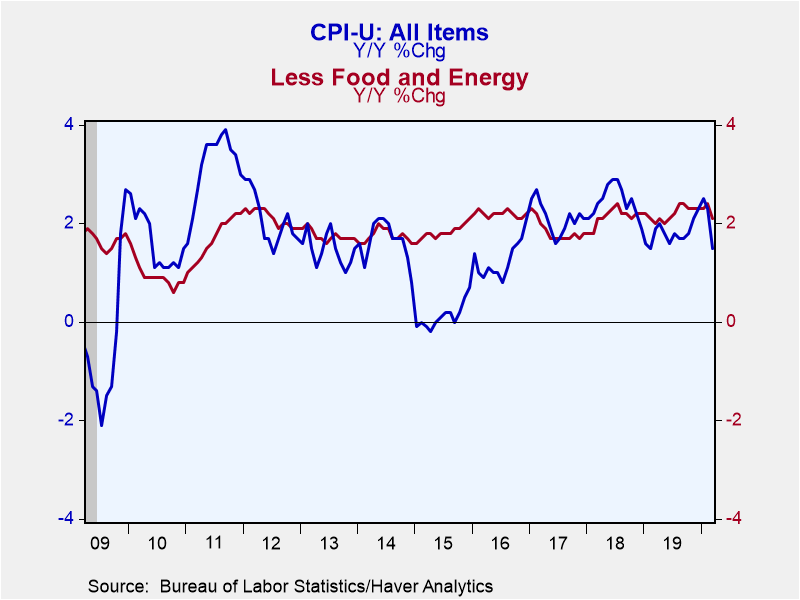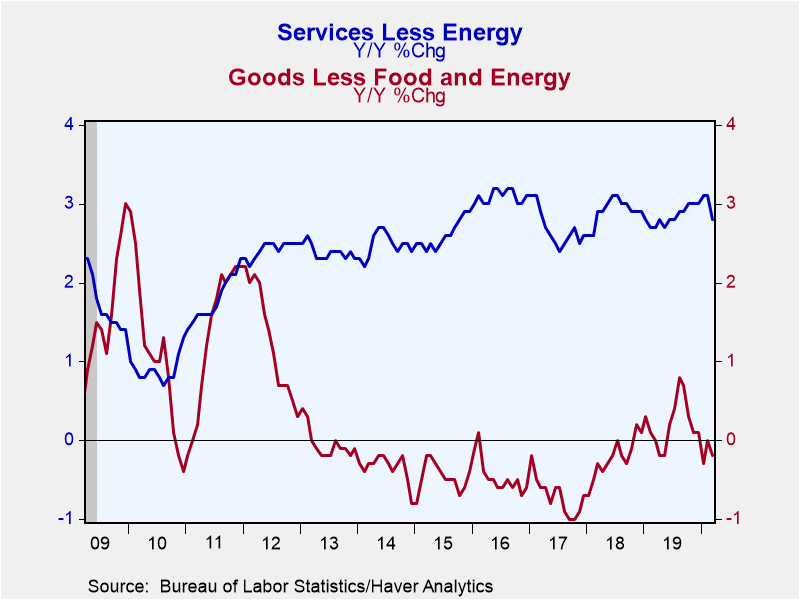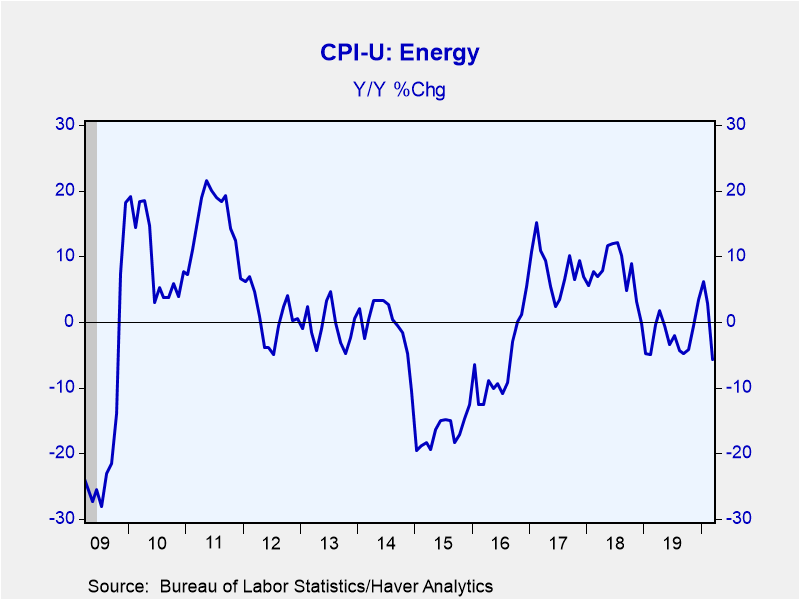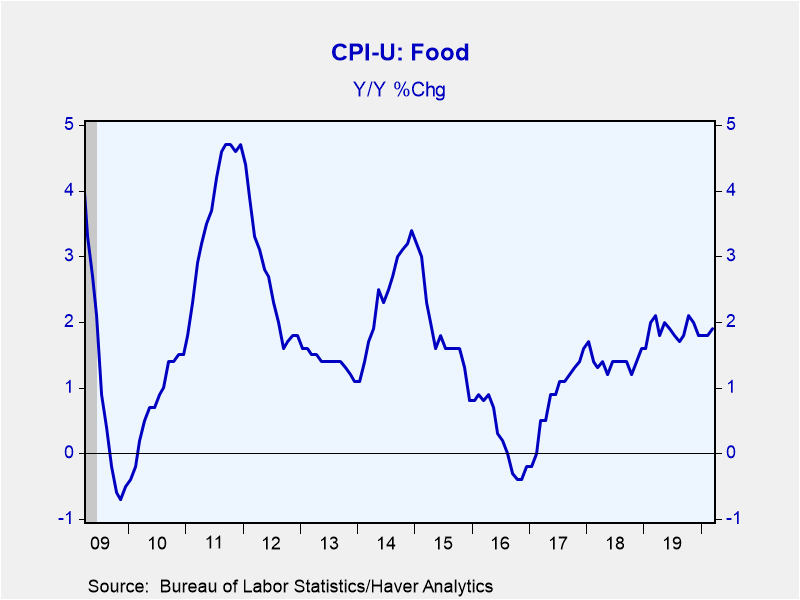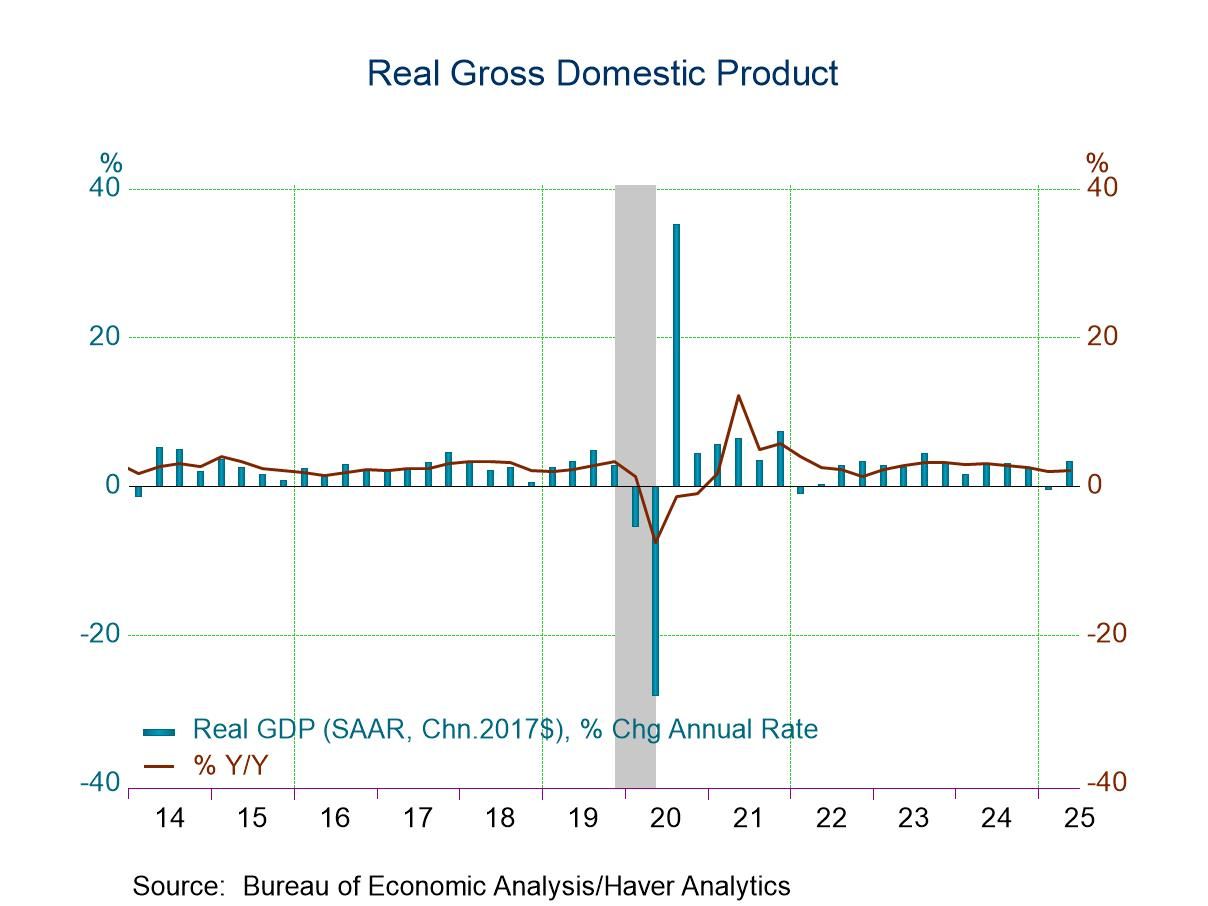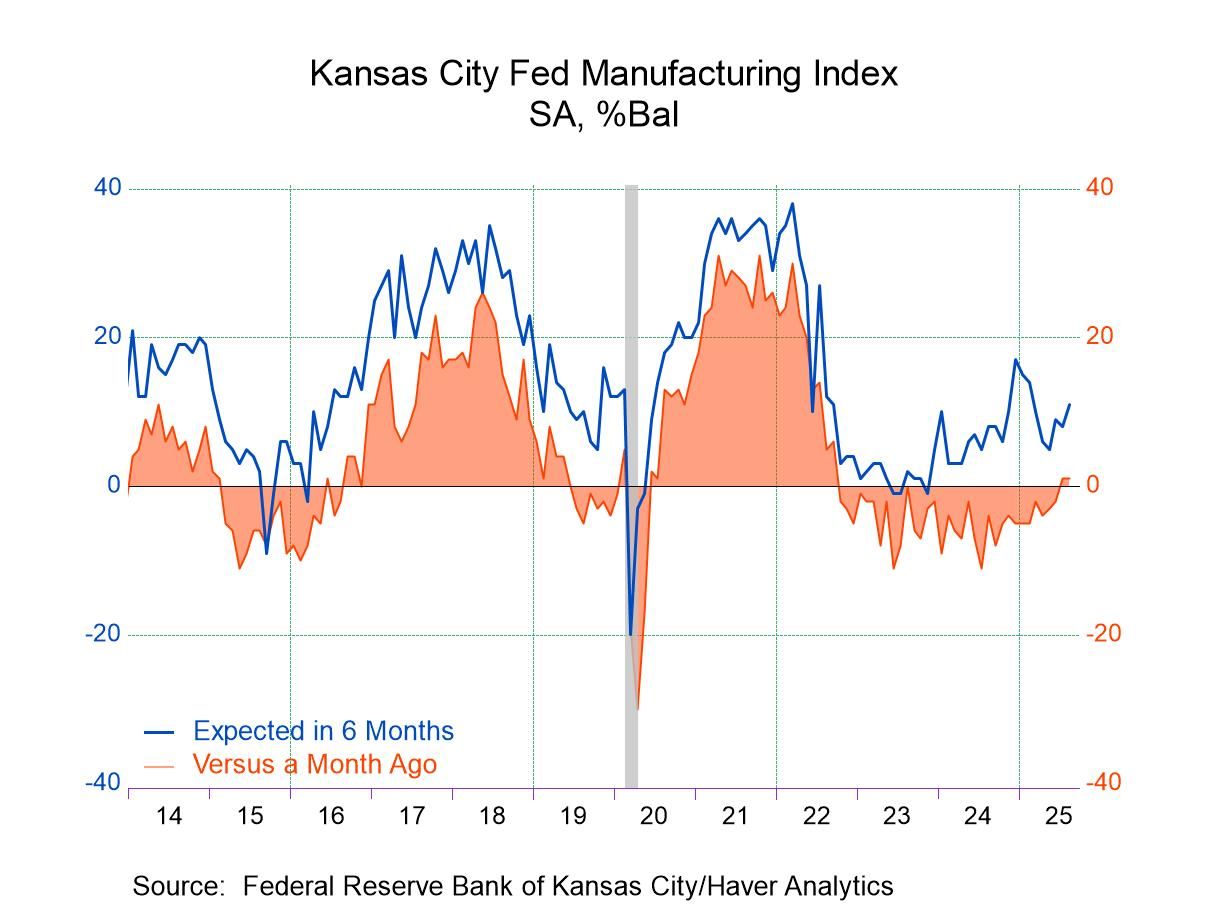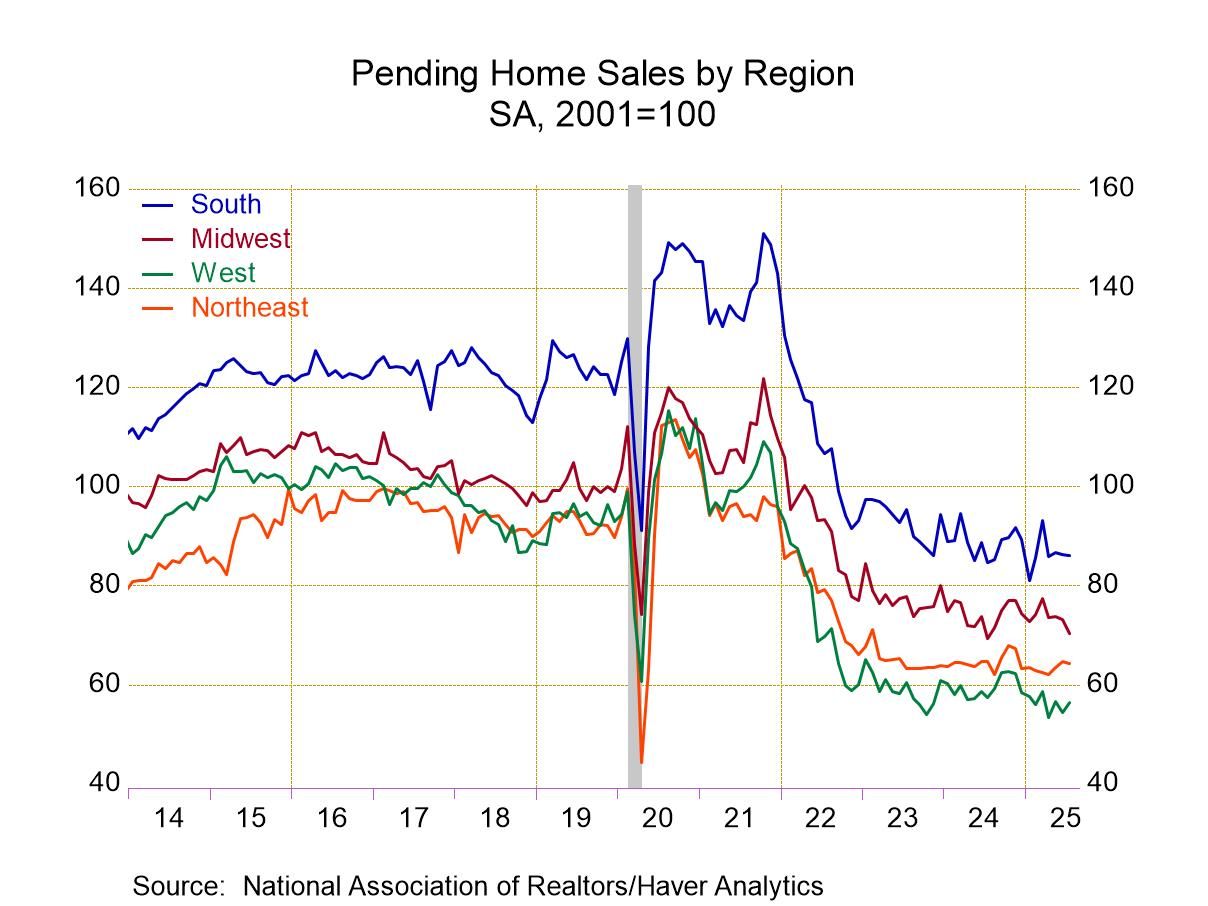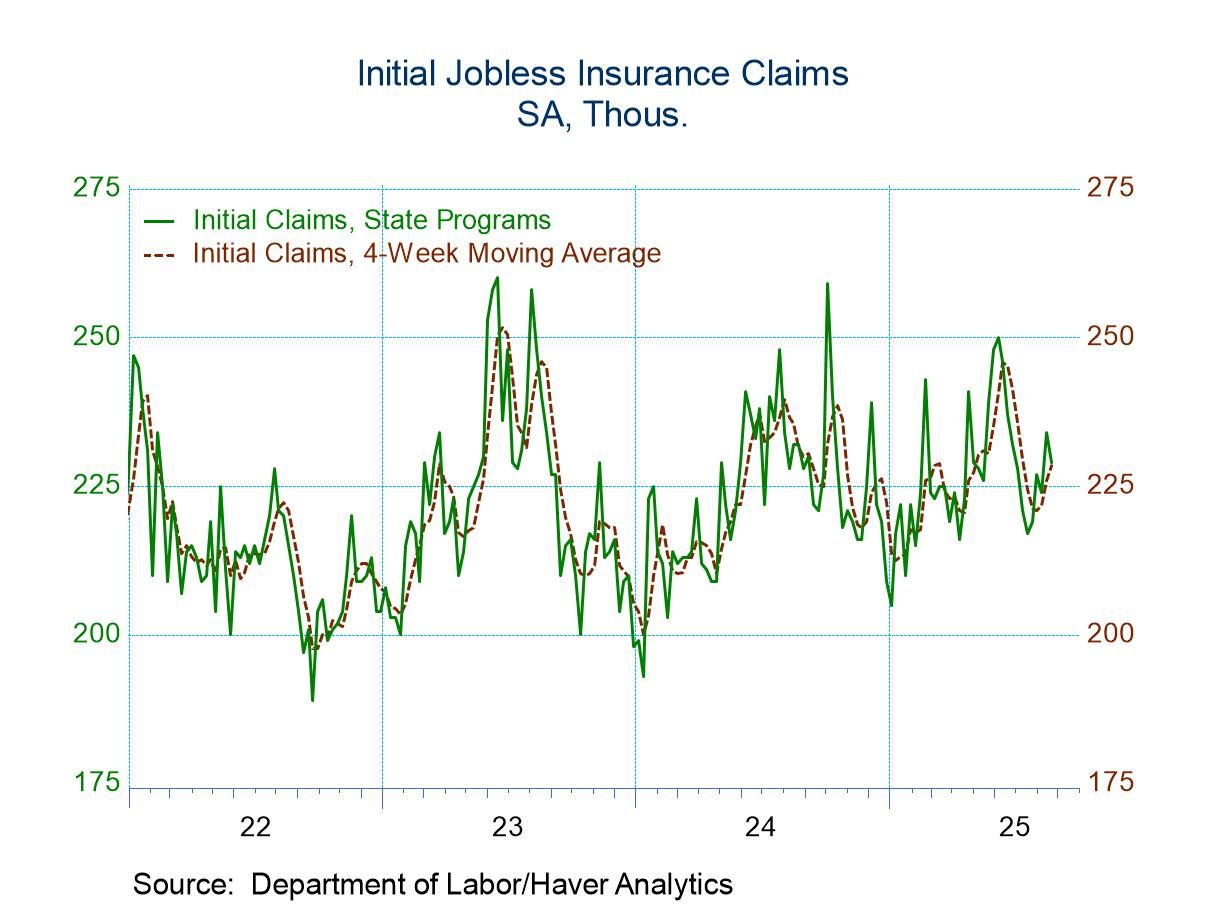 Global| Apr 10 2020
Global| Apr 10 2020U.S. Consumer Price Index Declines and Core Prices Slip
by:Tom Moeller
|in:Economy in Brief
Summary
The CPI fell during March by the largest amount since January 2015. Consumer prices were off 0.4% (+1.5% y/y) following two consecutive 0.1% increases. Expectations had been for a 0.3% decline in the Action Economics Forecast Survey. [...]
The CPI fell during March by the largest amount since January 2015. Consumer prices were off 0.4% (+1.5% y/y) following two consecutive 0.1% increases. Expectations had been for a 0.3% decline in the Action Economics Forecast Survey. The CPI excluding food & energy slipped 0.1% (+2.1% y/y) last month after two months of 0.2% increase. A 0.1% rise had been expected.
Lower energy prices held back the rise in the CPI as they declined 5.8% both m/m and y/y. It was the third consecutive monthly fall. Gasoline prices dropped 10.5% (-10.2% y/y) and fuel oil prices fell 13.7% (-20.1% y/y). Natural gas prices were off 1.4% (-2.9% y/y) while the cost of electricity eased 0.2% (+0.2% y/y).
Goods prices excluding food & energy moved 0.3% lower (-0.2% y/y) following a 0.2% rise. The decline was led by a 2.0% fall (-1.6% y/y) in apparel prices. Recreation goods prices declined 0.8% (-1.1% y/y). New vehicle prices weakened 0.4% both m/m and y/y while household furnishings prices fell 0.3% (-0.4% y/y). Medical care goods prices eased slightly (+1.3% y/y), off for the third straight month. Offsetting these declines was a 0.8% increase (0.1% y/y) in used car & truck prices as well as a 0.4% rise (-0.3% y/y) in appliance costs.
Services prices were little changed (2.8% y/y). Recreation services prices rose 0.6% (2.5% y/y). Medical care service prices improved 0.5% (5.5% y/y) following three straight 0.3% increases. Education & tuition prices edged 0.1% higher (2.1% y/y) for a second straight month. Shelter costs held steady (3.0% y/y) but the owners' equivalent rent of primary residences gained 0.3% (3.2% y/y). Hotel prices fell 6.8% (-6.4% y/y). The cost of public transportation weakened 8.5% (-7.2% y/y).
Food prices rose 0.3% (1.9% y/y). Nonalcoholic beverage prices increased 0.9% (1.4% y/y). Fresh fruit & vegetable prices improved 0.8% (-1.9% y/y) and dairy prices increased 0.6% (3.7% y/y). Cereal & bakery prices improved 0.1% both m/m and y/y. Offsetting these increases was a 0.3% decline (+3.3% y/y) in meat prices. Egg prices fell 0.8% (-4.0% y/y).
The Consumer Price Index data can be found in Haver's USECON database with additional detail in CPIDATA. The Action Economics survey figure is in the AS1REPNA database.
| Consumer Price Index, All Urban Consumers (% chg) | Mar | Feb | Jan | Mar Y/Y | 2019 | 2018 | 2017 |
|---|---|---|---|---|---|---|---|
| Total | -0.4 | 0.1 | 0.1 | 1.5 | 1.8 | 2.4 | 2.1 |
| Total less Food & Energy | -0.1 | 0.2 | 0.2 | 2.1 | 2.2 | 2.1 | 1.8 |
| Goods less Food & Energy | -0.3 | 0.2 | -0.0 | -0.2 | 0.2 | -0.2 | -0.7 |
| Services less Energy | -0.0 | 0.2 | 0.3 | 2.8 | 2.8 | 2.9 | 2.7 |
| Food | 0.3 | 0.4 | 0.2 | 1.9 | 1.9 | 1.4 | 0.9 |
| Energy | -5.8 | -2.0 | -0.7 | -5.8 | -2.1 | 7.5 | 7.9 |
Tom Moeller
AuthorMore in Author Profile »Prior to joining Haver Analytics in 2000, Mr. Moeller worked as the Economist at Chancellor Capital Management from 1985 to 1999. There, he developed comprehensive economic forecasts and interpreted economic data for equity and fixed income portfolio managers. Also at Chancellor, Mr. Moeller worked as an equity analyst and was responsible for researching and rating companies in the economically sensitive automobile and housing industries for investment in Chancellor’s equity portfolio. Prior to joining Chancellor, Mr. Moeller was an Economist at Citibank from 1979 to 1984. He also analyzed pricing behavior in the metals industry for the Council on Wage and Price Stability in Washington, D.C. In 1999, Mr. Moeller received the award for most accurate forecast from the Forecasters' Club of New York. From 1990 to 1992 he was President of the New York Association for Business Economists. Mr. Moeller earned an M.B.A. in Finance from Fordham University, where he graduated in 1987. He holds a Bachelor of Arts in Economics from George Washington University.


